Psychonauts
Psychonauts
Sam & Max meet Alice in Wonderland
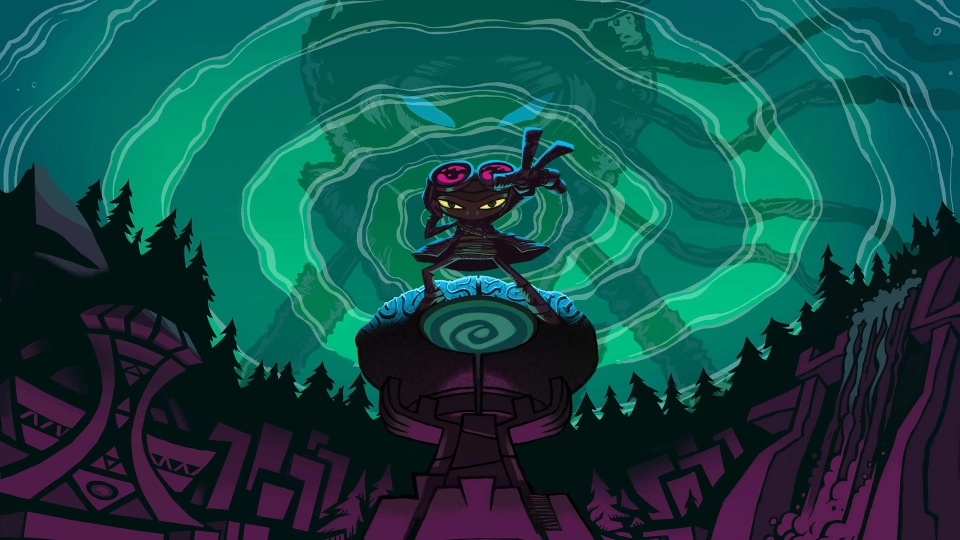
Act 1: Exposition
Today I'm taking on a game that I originally didn't want to write a review for. Like so many gamers, I too have an ever-growing pile of shame in digital form. I'm slowly trying to talk myself out of catching up on the console-exclusive God of Wars and Uncharteds of this world at some point, but so far the number of must-plays is not decreasing. However, to avoid living out my megalomania in Minecraft for the thirtieth time or letting my e-sports ambitions crumble in Overwatch I'm currently taking on smaller chunks of the gaming mountain.
After The Vanishing of Ethan Carter, What Remains of Edith Finch and finally Celeste, it's the turn of Psychonauts. In contrast to the aforementioned games, this old chestnut was released in 2005, at the same time as Battlefield 2, for example. By that I mean the successor to Battlefield 1942 (2002) and predecessor to Battlefield: Bad Company (2008), not the successor to Battlefield 1 (2016), which was the predecessor to Battlefield V (2018). Makes sense, right? Back to Psychonauts and the year 2005. At the time, the game received overwhelming praise, and even today the Steam reviews proclaim the “extremely positive” seal of approval. Are they all retro kids blinded by nostalgia, or is there more to it than that? I remembered test articles from back then in which the game looked a bit funky and also somehow unspectacular. The screenshots on the net promised a similar picture... 15 years later, it's time to put it to the test.
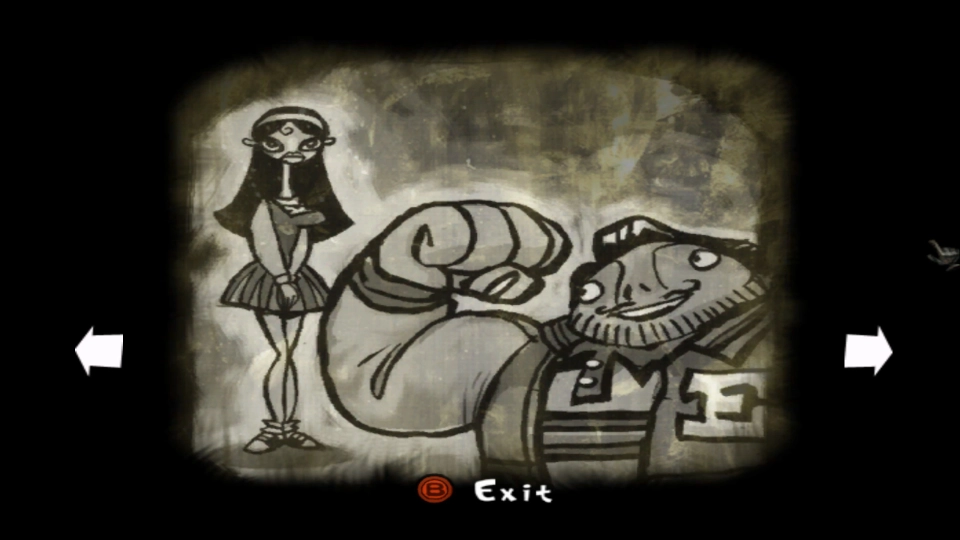
I launch the game: it starts with a slightly fuzzy cutscene that doesn't suggest any graphical opulence - as I said, this is 2005. The look is cartoony, the character models angular and lacking in polygon, textures are washed out. This was to be expected, but it doesn't make the whole thing any better. In terms of content, the oldtimer is more impressive: the background story about the psi-talented Psychonauts is touched on, we are apparently in a summer camp where the next generation of brain acrobats is being trained - that sounds pretty interesting.
We play Rasputin, or “Raz”, who has apparently sneaked into the camp without his parents' consent in order to become a psychonaut. The teachers quickly recognize the young runaway's talent and we are allowed to take part in the first training sessions. I don't want to say any more about the background story, especially as there isn't much more to tell. The plot is relatively simple and suggests a straightforward underdog story in which we work our way up from rookie to hero.
This simplicity seems to me to be the first indicator that Psychonauts is a typical, child-oriented platformer with funny-looking characters and over-the-top action that can hardly serve as entertainment for adults. As a result, I'm actually ready to uninstall the game after the first few minutes of gameplay. Following the intro in the game world, we enter the first area of the camp grounds. The music drones on and there are flashes and shiny objects everywhere - so there's a lot to collect here. As an overachiever, I have no problem with this, as I am someone who has tracked down 100% of the collectables in almost all Assassin's Creed Assassin’s Creed games. Yes, really: 100%.
In Psychonauts, you can track down Indian arrowheads, which will later serve as currency in the store, as well as PSI cards, which are used to improve our psychonaut rank. But I don't know that yet at this point, and before I ask myself the whys and wherefores, I graze the first area rather listlessly. The game mechanics remind me of Jak and Dexter: lots of jumping, lots of fighting and probably not much depth. A quick look at howlongtobeat: 12 hours playing time. 12 hours? No way. I won't last that long. I'll give myself another 30 minutes at most.
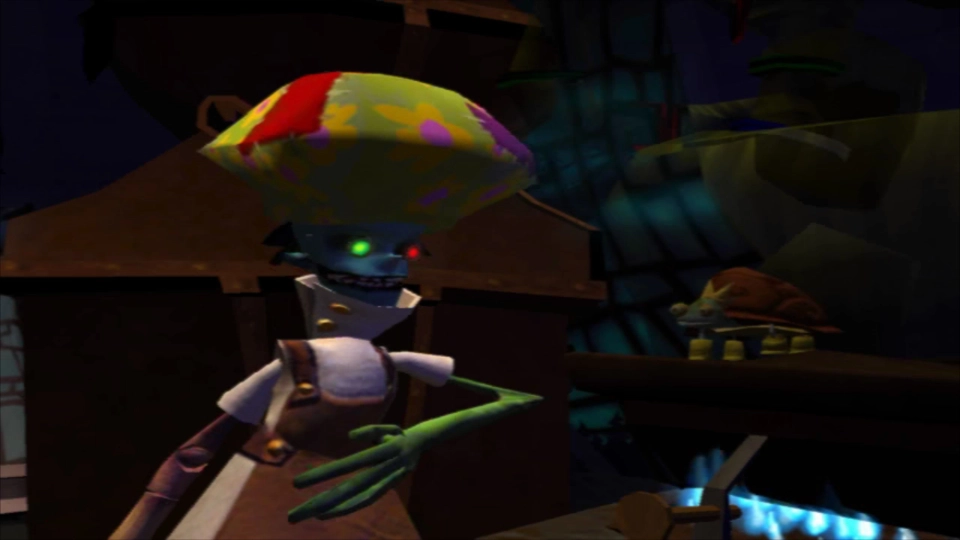
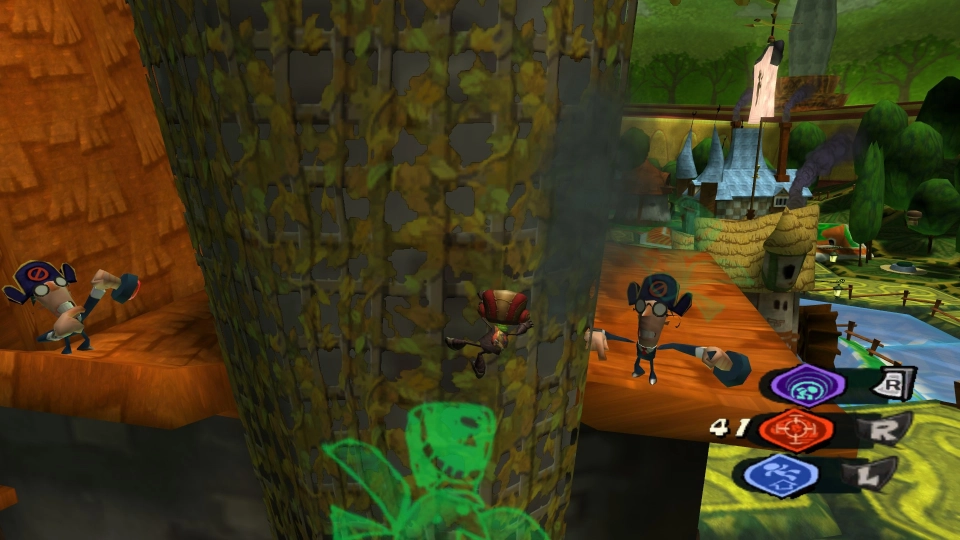
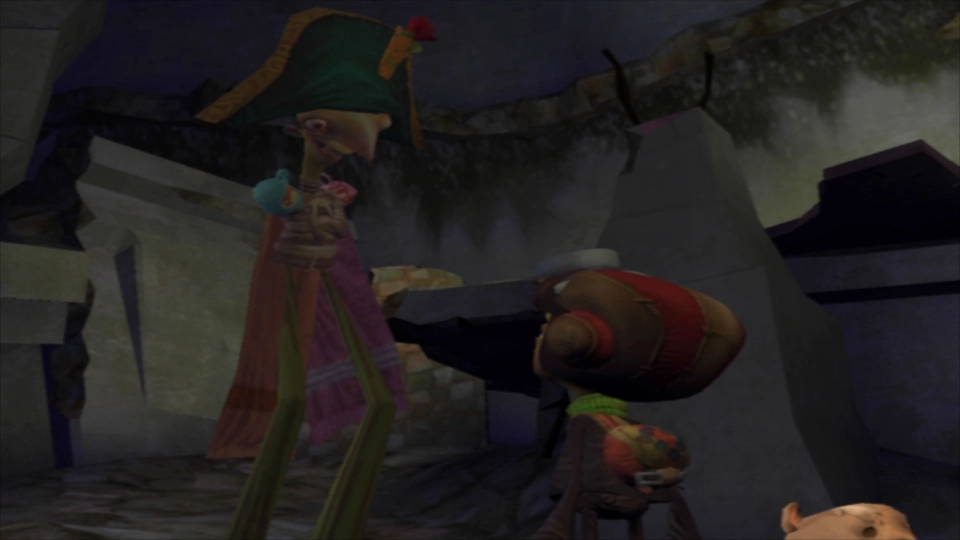
Act 2: Rising action
My expectations for the rest of the game at this time are along the lines of the early Harry Potter-games, which I thought were great entertainment as a kid, but are now probably bordering on unplayable - especially without juvenile lack of demands. I'll probably learn a few skills, experience a few childishly funny stories and then comes the happy ending. My finger hovers over the escape button as I head off to my first training session. There I meet the character from the intro, the completely over-the-top drill sergeant Coach Oleander, complete with kaiser helpet, bandolier and merit badge. A thought portal, a device represented as a door on the forehead, takes me into the psyche of the phrase-spouting soldier.
Instead of funny skill learning, Raz finds himself on a training course in the middle of a battlefield inspired by the aesthetics of the First World War. Bombs detonate, machine gun fire booms, war equipment sputters. Somehow it doesn't seem as cute as I had expected. As I jump and climb over chasms and scale wire mesh fences, the attention to detail and skillful use of level architecture is immediately apparent. I swing up a bunker wall, with protruding gun barrels serving as climbing poles, dodging the continuous fire of a bunker until I jump in through the roof hatch and suddenly find myself in the cockpit of an airplane.
Despite the childish presentation and subtle comments, it doesn't strike me as being made for 12-year-olds - and I feel old. The environment is not just a backdrop, but a storytelling device; the whole thing is called environmental storytelling, by the way. While exploring, I collect memory fragments that expand the scenery like a backdrop - the whole thing seems well thought out and surprisingly coherent, as if I had really immersed myself in the psyche of this veteran to a certain extent.
Contrary to my initial doubts, I am excited, but after the training session I make the mistake again of continuing to collect as usual while exploring the now accessible areas of the camp and following the main quest later. The brief euphoria fades again, the controls and especially the jumping turn out to be a little imprecise and as big as the map seems at first, I quickly saw everything. It's difficult to determine where I have to go next on the minimap, and the task log is also relatively useless. But at least I've gotten used to the graphics and, thanks to the exaggerated comic book aesthetic, I even find them appealing in places... as long as you don't look too closely.
While exploring, I meet my classmates again, all of whom seem to have sprung from the ABCs of American teen tropes: the introverted loser who is teased by the bullies; the weirdo who is shunned by the other kids; the ladies' man who is completely under the thumb of his girlfriend; and of course the cool love interest for the protagonist, who naturally doesn't want to know anything about him at first. It's all familiar and would seem uninspired if it weren't for the dialogues, some of which try to score points with in-your-face humour, but are often much more laugh-out-loud funny thanks to subtle allusions.
For example, the cheerleader couple Clem & Crystal, who cheer on protagonist Raz at every encounter with their overly positive manner, only to then hint that they both have a suicide pact going on. This sad-clown concept is likely to escape children, but it is witty in its realization as a macabre running gag for the older ones. In general, Psychonauts draws most of its entertainment from the dialog and the clownish self-irony that pervades the game, as well as from the dark, psychological depths of its characters, which we explore in sometimes crazy levels.
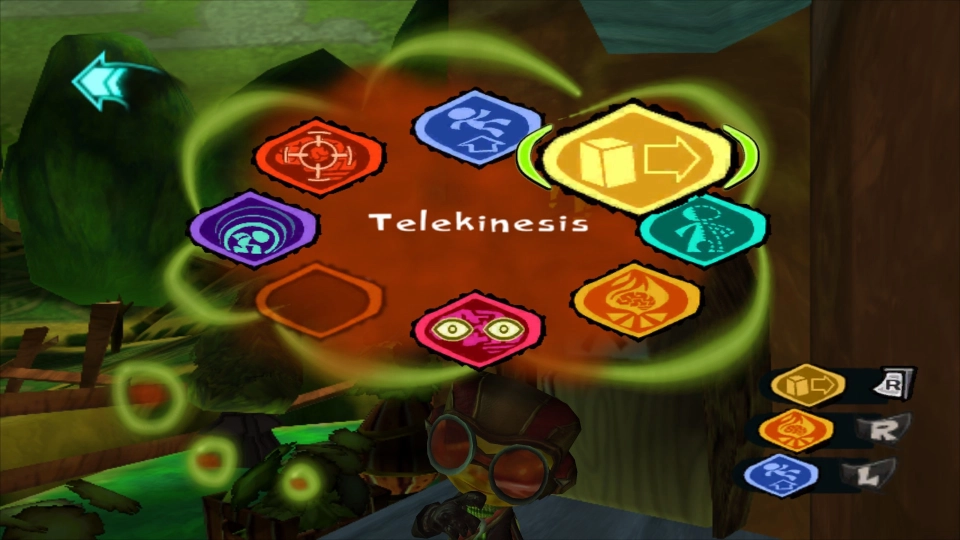
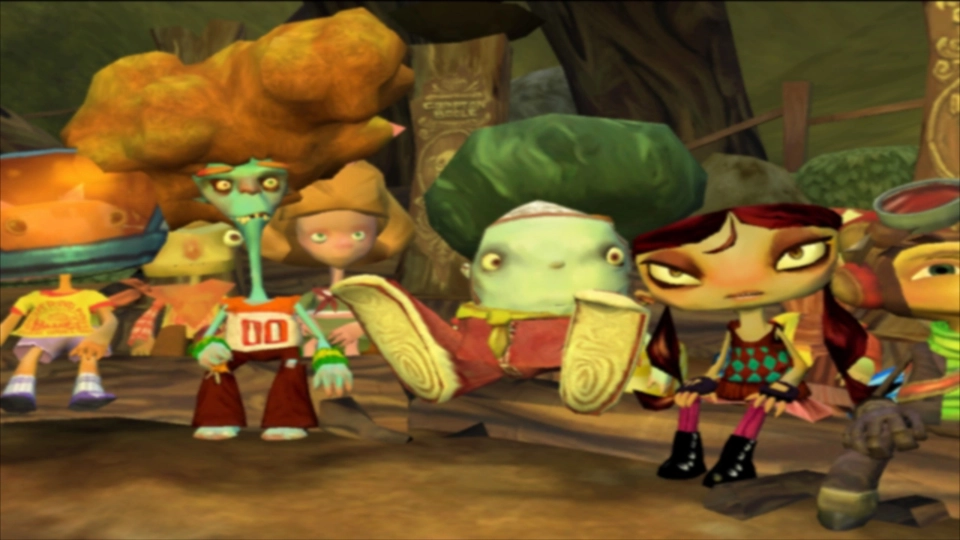
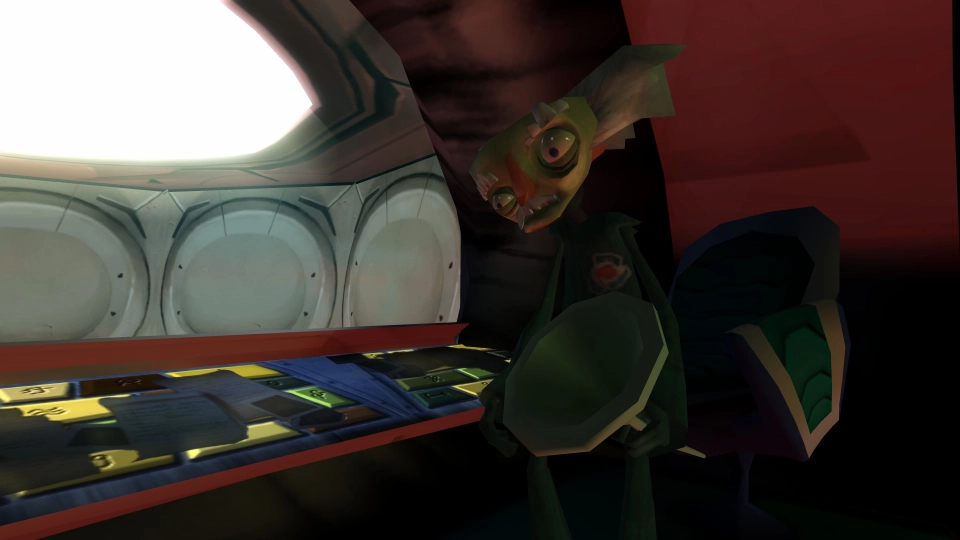
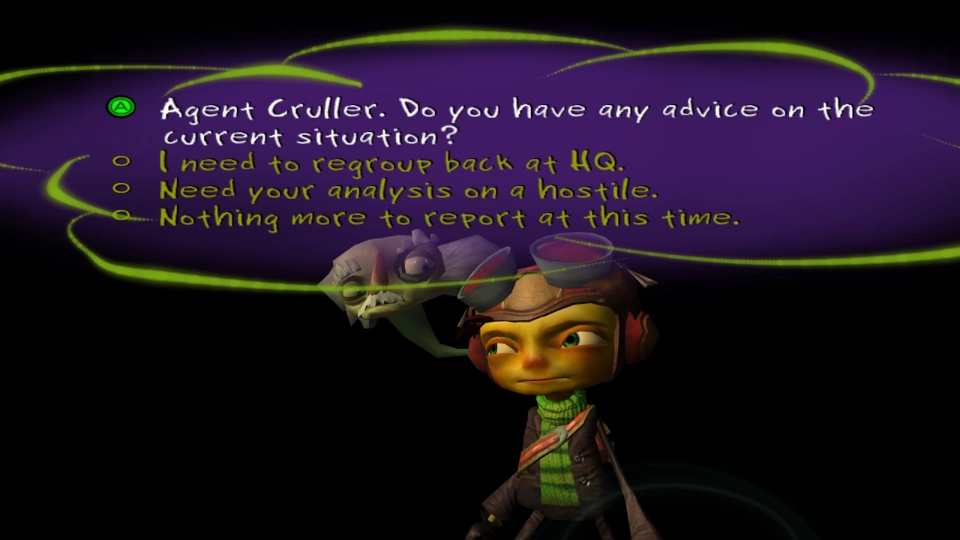
Act 3: Climax
After my little valley of disillusionment, I got back on track with the main quest and followed the 10-hour storyline with enthusiasm, which was only occasionally marred by annoying trial-and-error passages and collection tasks. I would also advise anyone who wants to try out Psychonauts to do the same. Although the game rewards collectors with experience points, which then improve our agent rank, we only receive an upgrade to our abilities approximately every 10 levels.
For example, objects moved by telekinesis can be thrown further or shots can jump from enemy to enemy. As far as the abilities that we gradually unlock are concerned, the game shows its extensive side. We learn nine different powers, including the aforementioned telekinesis, a protective shield, levitation and the ability to see the world through the eyes of others. These are all required during the course of the game, but beyond their specific levels, their usefulness varies considerably.
Unfortunately, this is where Psychonauts shows that its strengths do not lie in its gameplay, as you don't actually need half of the cool abilities. For example, Raz can use the fire ability to set objects on fire, but he has to stop for a moment and focus to do so. This is not a problem with immovable objects, but if we set an enemy on fire, there is a chance that he might run into us and set us on fire too. The shield, on the other hand, makes us invulnerable for a short time, and we can use invisibility to simply avoid enemies altogether.
With the levitation ability, however, which allows us to run faster and jump higher, I had the feeling that the developers forgot halfway through the development process that they had included this mechanic. Far too often, experienced players can simply bypass or skip entire climbing passages and override boss mechanics. Of course, you could argue that the game is geared towards children, but I would disagree, and not just for the reasons mentioned above. In fact, I think a comparison with games like Sam & Max is more apt, which are aimed at a younger audience due to their comic look and cartoonish nature, but whose content is not necessarily understandable for them.
It's more down to the age of the game and the inexperience of the developers in their first work that a lot of the game's challenge is lost by simply exploiting the mechanics. Battles remain shallow and largely irrelevant, with only the numerous boss battles requiring a little brain power now and again. Since leveling up is done passively by killing enemies and collecting PSI cards, but the abilities themselves are useless, there is no motivation to fight and explore - especially as the enemies respawn when you run through the levels again anyway. Despite his pacifism, Raz can often be seen to die virtually, especially through the countless chasms that you can accidentally stumble and jump into - and no, I won't accept the age argument here, I was annoyed far too often for that.
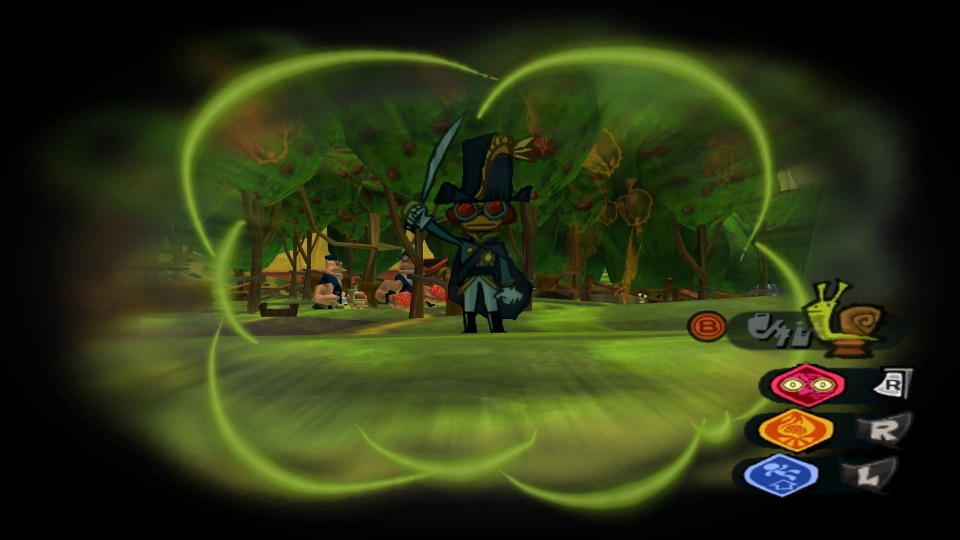
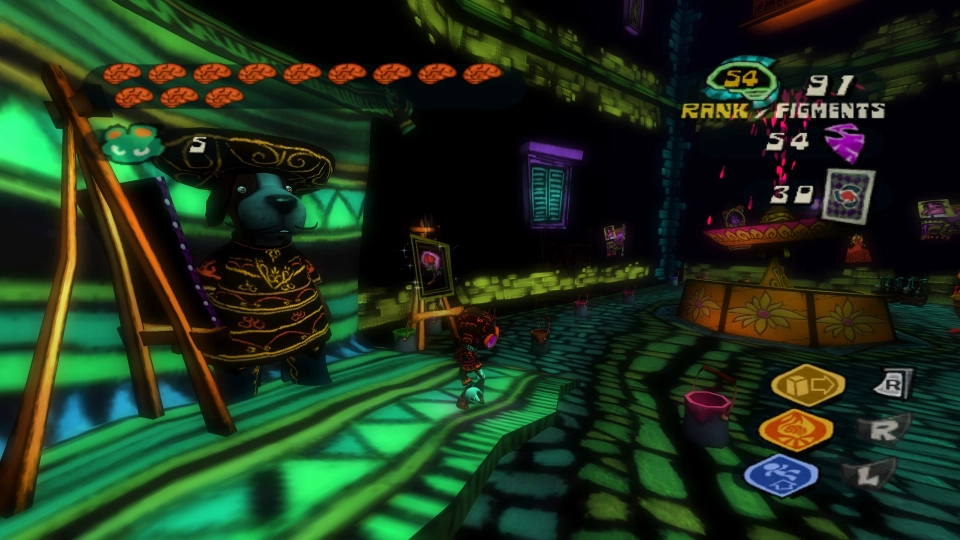
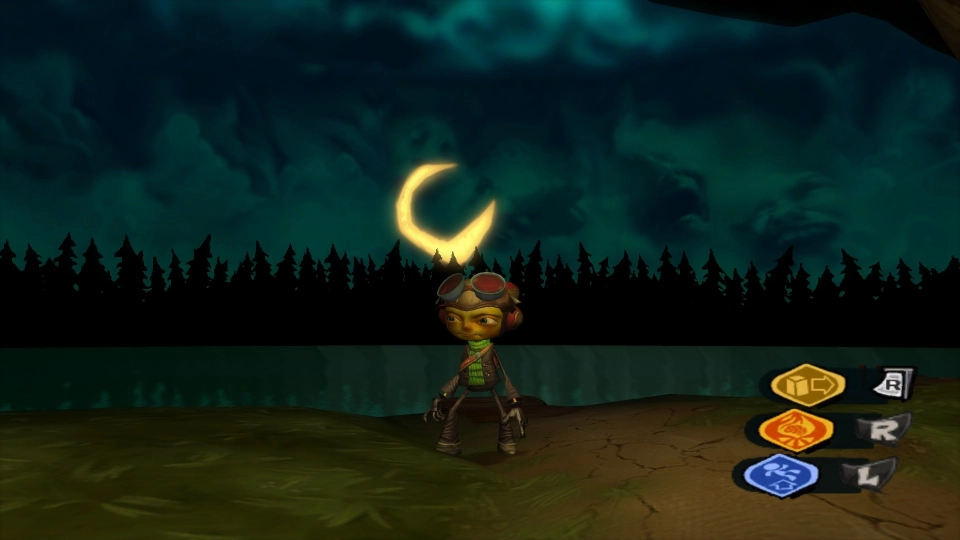
Act 4: Falling action
Well, I mentioned that it's not the gameplay that makes Psychonauts stand out. It's also not necessarily the humor, which is to my taste, but sometimes a bit too clownish (for example, the villain Dr. Loboto's sidekick is called “Sheegor”... like Igor, only female - I thought it was funny). But for me, the journey into a person's mind really defines the core of the game. The scenery, which is reminiscent of a mixture of Alice in Wonderland and Inception and in which themed worlds are implemented creatively and with great attention to detail. I can remember each level quite vividly because each one gives shape to the psyche of the different characters.
There are levels like the training course of our teacher Milla Vodello, who lets you jump through a disco landscape as a cheerful, life-affirming person. As an incorrigible explorer, I then accidentally found an adjoining room with a mental safe whose contents, a picture slideshow, describe Vodello's tragic past as an employee of an orphanage whose children had all died in a fire. One room further on, I find myself encased in flames, the whimpering and pleading of the children filling the air.
Or the interior of an asylum inmate who, as a descendant of Napoleon, is wrestling with a manifestation of the French general and whom I have to help by defeating him in a strategy game. I jump from the game table directly onto the playing field, while marching music based on the Marseillaise, the French national anthem, accompanies the action. On the game board, I solve tasks, recruit soldiers and marvel at the level of detail with which an atmospheric work of art has been created from a simple but fantastic idea.
Or I visit the mind of a failed, bipolar theater actress who is plagued by her inner critic and appoints me as the director of the play. There I can switch between a positive and negative attitude to match the illness, which changes the set, the actors' attitudes and the plot. At the same time, the content of the play depicts her childhood and explains how the influence of her mother and her mother's boyfriend affected the young woman's fate for the worse.
Or the psyche of an artist who is attached to his childhood sweetheart and for whom I am chased through the streets of a Spanish city by a bull. Or, or, or. All of this remains in the memory, like the mansion level from Thief, or these moments from The Stanley Parable.
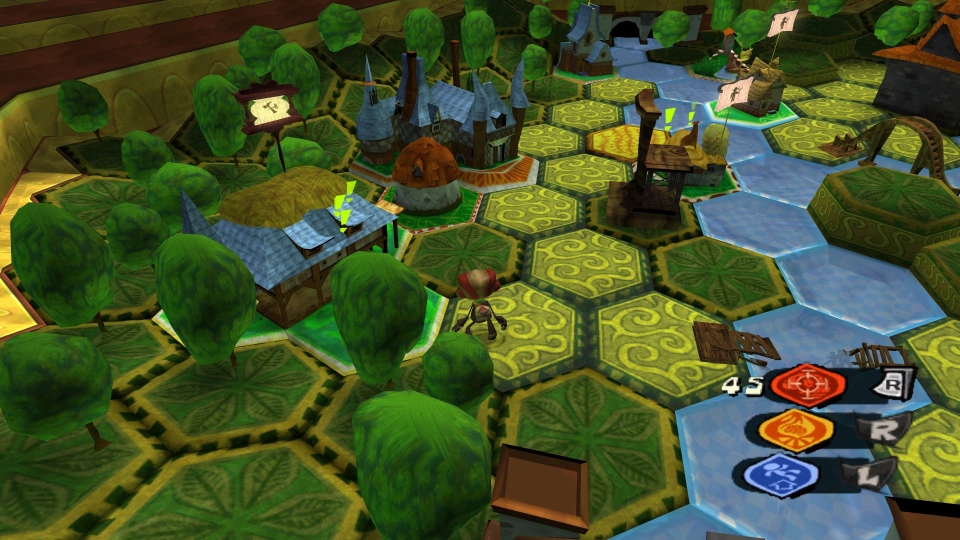
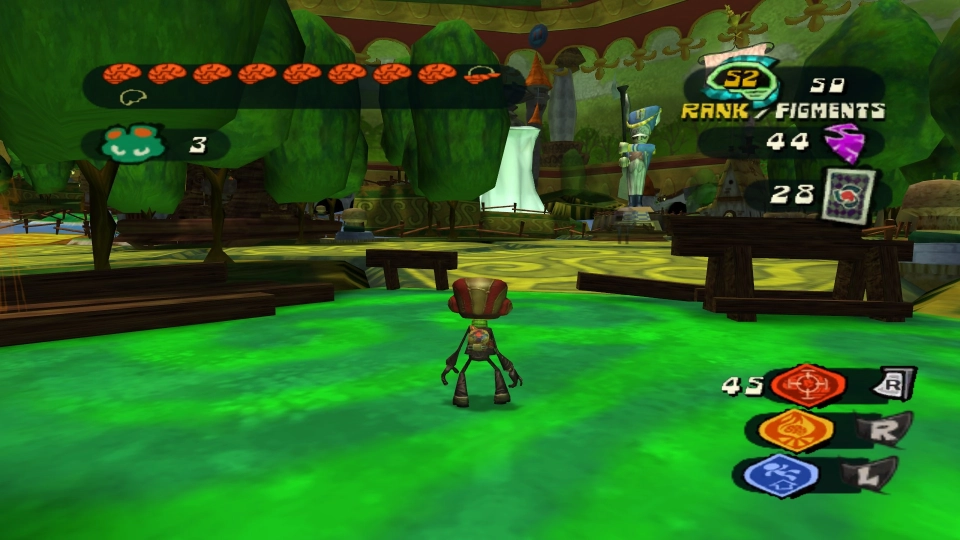
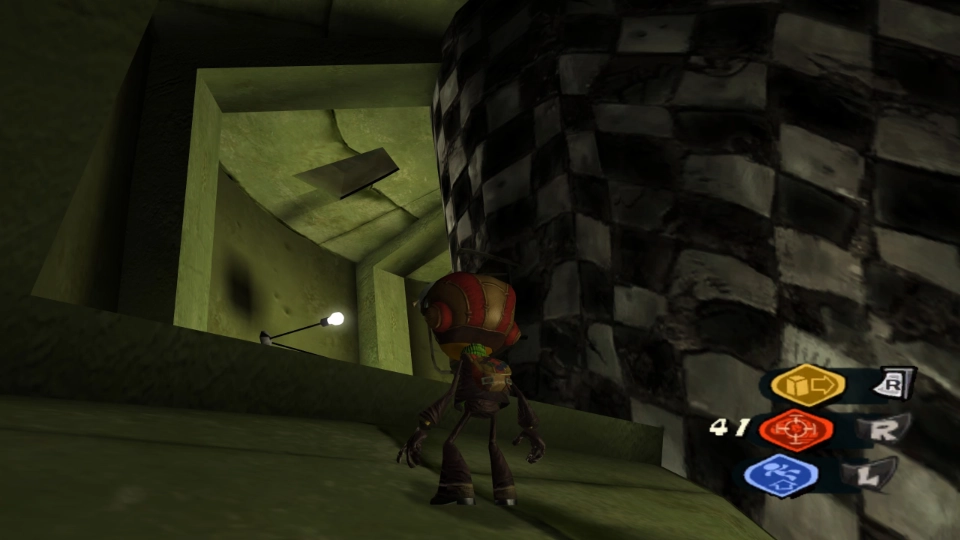
Act 5: Resolution?
Finally, I just have to point out once again the stylistic prowess that Double Fine Productions demonstrate with Psychonauts . This ranges from the sketchbook-like cartoon strips that provide us with background stories, to the collectible duffle bags that wait crying in the level for their tags and symbolize the emotional baggage we all have to carry. Or the fact that Raz, as the main character, has a background story that is not placed in the foreground, but to which reference are made.
For example, his fear of water is revealed, and at other times he can encourage someone because, as a circus member, he knows what it's like to have stage fright before a big performance. Or when we use the Clairvoyance ability to share another character's point of view and in which Raz is always perceived differently, sometimes as a hungry mouth, sometimes as a role model, a prince, a baby and so on. The censors, which are the brain's natural defence mechanism and recognize us as intruders and attack us in the levels, are also a great idea, even if they are probably more of a homage to the agents from The Matrix films.

Bottom line
Of course, the game shows its age in some places, such as the repetitive animations and sound files. Also, the protagonist is sometimes a little too cool and the voice acting, although on point in most cases, is sometimes a little over the top. Overall, however, Psychonauts cannot be given a bad mark, rather the general tenor as a cult classic can be affirmed. The game is good, very good even in its storytelling, less good in its gameplay. If you can look past this and focus on the story and environmental storytelling while playing, you will still have fun with it today. And who knows what Psychonauts 2 which is due to be released this year, will be like? If it is on a similar level to its predecessor and eliminates its weaknesses, nothing stands in the way of another “extremely positive” game.
